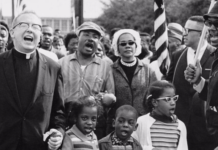Psychedelics, Transformative Experiences and Healing: An Interview with Katrina Michelle
Richard Sears interviews transpersonal psychologist Katrina Michelle about harm reduction practices with psychedelics in therapy.
Reframing Britney: Press and Public Waking Up to Guardianship Harms
The documentary "Framing Britney Spears" has led to a change in the public’s view of Spears and even prompted political action on guardianship laws.
Questioning the Moral Panic Around Teletherapy: An Interview with Hannah Zeavin
MIA's Emaline Friedman interviews Hannah Zeavin about what the history of teletherapy reveals about its limitations and radical potential.
The Surprising Mental Health Benefits of Volunteering
A program offers psychotherapy in exchange for voluntary service in the community. But the act of volunteering itself can have mental health benefits of its own.
How Therapists Can Help With Psychiatric Drug Withdrawal: An Interview With Anne Guy
MIA's Richard Sears interviews psychotherapist Anne Guy about working with clients withdrawing from psychiatric drugs.
What Does Our Species Require for a Healthy Life? An Interview with Peter Sterling
In his book "What is Health," Peter Sterling asks this provocative question: What does our species require for a healthy life? And can we achieve this with drugs?
Feminism, Psychoanalysis and Critical Psychology: An Interview with Bethany Morris
MIA's Micah Ingle interviews Bethany Morris about the psychoanalytic study of film and the history of the "monstrous feminine" in psychiatry.
Creative Maladjustment: An Interview with Donzaleigh Abernathy
Donzaleigh Abernathy—goddaughter of the Reverend Dr. Martin Luther King, Jr.—shares her thoughts on the civil rights movement and the legacy of racism in the United States.
Uncomfortable Truths in Survivor Narratives: An Interview with Helen Spandler
MIA’s Ayurdhi Dhar interviews Helen Spandler about how psychiatric survivors challenge and change our thinking about mental health.
The Lessons of Music: Nurturing Mental Health in Cultures Around the Globe
Music is an ancient and omnipresent tool for wellness, a carrier of peace for individuals, and a bonding agent for communities throughout history and the world.
Jill Nickens – The Akathisia Alliance for Education and Research
This week on the Mad in America podcast we turn our attention to prescription-drug-induced akathisia and joining me to discuss this is Jill Nickens. Jill is the president and founder of the Akathisia Alliance for Education and Research, a nonprofit organization formed by people who have personal experience of akathisia.
Trauma and Mental Health in Social Movements: An Interview with Janice Haaken
MIA's Emaline Friedman interviews psychologist and filmmaker Janice Haaken about how mental health discourse impacts social movements.
The False Memory Syndrome at 30: How Flawed Science Turned into Conventional Wisdom ...
Soon after states finally began providing adults who remembered childhood abuse with the legal standing to sue, the FMSF began waging a PR campaign to discredit their memories—in both courtrooms and in the public mind.
Psychiatry and the Counterculture: An Interview with Health Historian Lucas Richert
Richard Sears interviews pharmaceutical industry scholar Lucas Richert about American counterculture and psychiatry in the 1970s.
Music Aids Mental Health: Science Shows Why
What can science tell us about music’s impact on our cognition and on our mood, on our capacity for empathy, and our sense of connection with others? How does it change the brain? How does it change us?
Fascist Subjectivity and the Subhuman: An Interview with Critical Psychologist Thomas Teo
MIA's Tim Beck interviews critical psychologist Thomas Teo on how theory and research can do justice to the people it means to describe and explain.
Making Music, Healing Souls
The healing power of communal singing is at the heart of two organizations in England and Ireland: Sing Your Heart Out and 49 North Street.
Psychosocial Disability Rights and Digital Mental Health: An Interview with Piers Gooding
MIA's Emaline Friedman interviews legal scholar Piers Gooding on his work on disability rights and digital mental health technologies.
Suicide Hotlines Bill Themselves as Confidential—Even as Some Trace Your Call
Every year suicide hotline centers covertly trace tens of thousands of confidential calls, and police come to homes, schools, and workplaces to forcibly take callers to psychiatric hospitals.
Rethinking Suicide Prevention: An Interview on Critical Suicide Studies with Jennifer White
MIA’s Samantha Lilly interviews critical youth suicidologist Jennifer White about what suicide prevention could look like outside of the medical model.
A Short History of Tardive Dyskinesia: 65 Years of Drug-Induced Brain Damage That Rolls...
Psychiatry has long turned a blind eye to the full scope of harm associated with TD. New TD drugs "work" by further impairing brain function.
The Latest “Breakthrough Therapy”: Expensive New Drugs for Tardive Dyskinesia
The increased prescribing of antipsychotics, which frequently cause a brain injury that manifests as tardive dyskinesia, has provided pharmaceutical companies with a lucrative new market opportunity.
How Culture Influences Voice Hearing: An Interview with Stanford Anthropologist Tanya Luhrmann
Ayurdhi Dhar interviews Tanya Luhrmann about cultural differences in voice-hearing, diagnosis and damaged identities, and conflicts in psychiatry.
Surviving Antidepressants: An Interview with Adele Framer
That is the truth about withdrawal syndrome: It’s like a 50-50 chance that you’re going to have a problem. If you’re in the unlucky half, you’re gonna be really unlucky.
Voting While “Mentally Ill”: A Legacy of Discrimination
Legal and practical barriers to voting disenfranchise people judged "mentally incompetent." The centuries-old, unclear laws and regulations also disproportionately affect people of color.

































